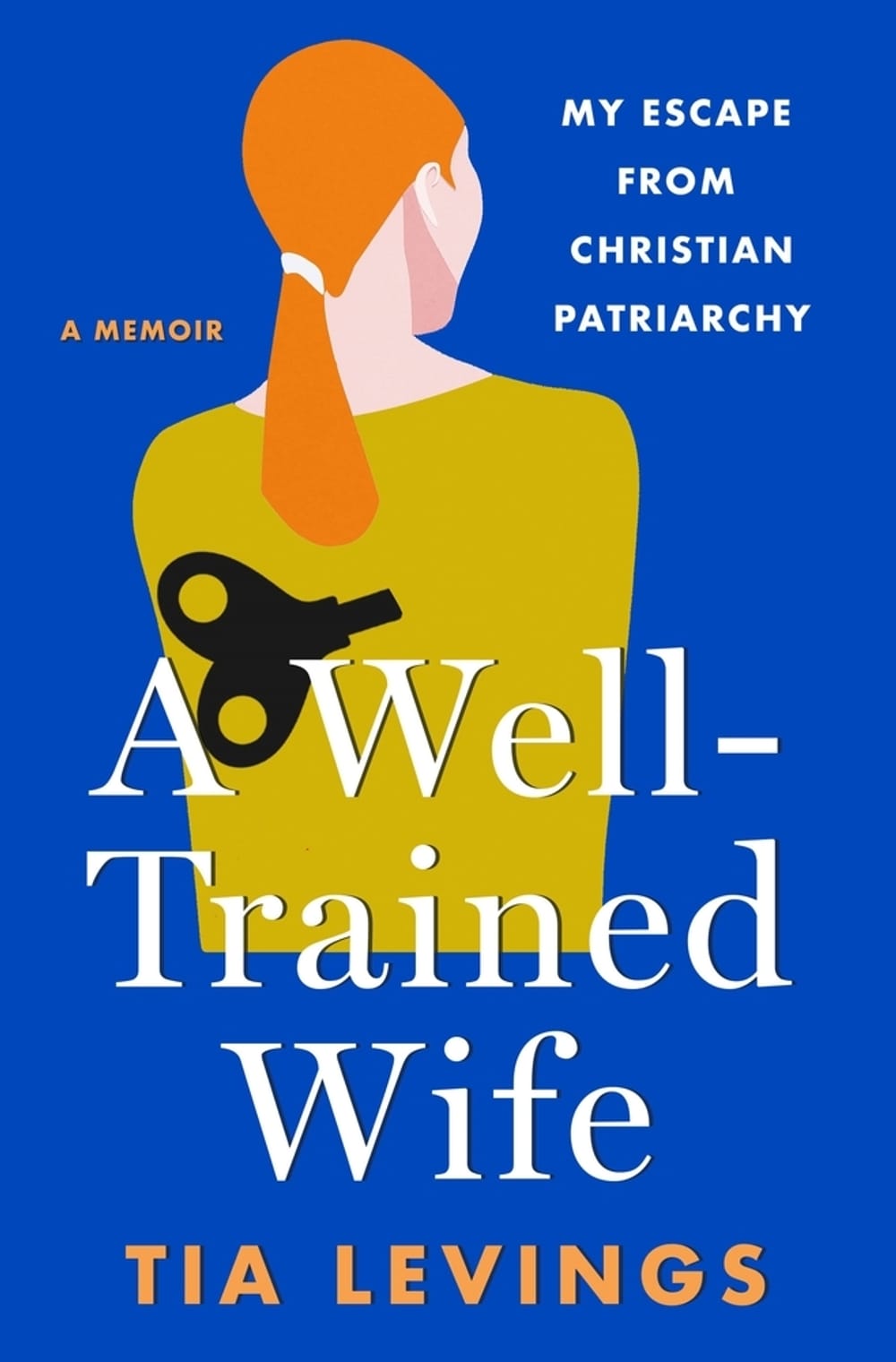Stay in the Loop
BSR publishes on a weekly schedule, with an email newsletter every Wednesday and Thursday morning. There’s no paywall, and subscribing is always free.
Women don’t need patriarchy, but patriarchy needs us
A Well-Trained Wife: My Escape from Christian Patriarchy, by Tia Levings

“If it was really that bad, why did you stay so long?” It’s a question that survivors of intimate partner violence inevitably get as we claw our way out and try to heal from the abuse. And the answer to that question is in the title of a new memoir by Tia Levings: A Well-Trained Wife: My Escape from Christian Patriarchy.
Too often, domestic violence is framed as an unfortunate individual case of poor judgment or even exaggeration. Why did we stay? Because our partner was initially charming and we can’t face our own bad decisions, or because staying in a painful relationship is better than being single … or, as the implication goes, because things really couldn't have been so bad after all.
We can’t address domestic violence until we acknowledge the real reason so many women (and vulnerable people of other genders) wind up in this trap. We’ve been well-trained to tolerate this abuse in a world that devalues and objectifies us, throws the biggest party of our lives when we get married, and shames us when we divorce.
The dominoes of submission
This is especially true for women like Levings, who describes the many “dominoes” in her life that led to the jaws of the Quiverfull movement (of Duggar family fame): her parents’ economic struggles and their move to a Florida-based megachurch, childhood bullying, sexual assault, end-time terrors, and the misogynistic teachings of her church.
“Gothard lives held fewer dominoes,” she says of sinking deeper into a fundamentalist sect whose paternalistic strictures seemed to offer fewer risky variables: a refuge from a dangerous world. Her indoctrination was a survival mechanism for her already crushing anxieties and trauma.
Levings meets and marries Allan by the time she’s 19, and A Well-Trained Wife follows her increasingly harrowing family life, including her husband’s vice-like control (from her clothes to her shopping to her hobbies) and burgeoning physical and sexual abuse—all sanctioned and encouraged by their church. She submits to it all in desperate hope that a properly ordered life will protect her and satisfy God.
“No-one had told me there’s no level of submission that’s ‘enough.’ In a cage, a tiger can circle. In a maze, a rat can run,” she writes. “But submission is not a cage. It’s a vacuum. As you give, the container squeezes harder, removing all air.”
Men are trapped, too
Levings’s path out is as gripping and lyrical as a good novel. Survivors, read with care: abusers all seem to have the same playbook, regardless of their background, and this story stirred up a lot for me as a survivor of both an abusive marriage and the cult-like Christian sect that led me there. But what strikes me most deeply about this memoir is its generosity and the author’s honesty about her own past complicity.
She details her husband’s depredations, but she’s also uncommonly gracious to him, ultimately recognizing him as a soul who is just as trapped as she is in a toxic system.
“His shoulders bent with burden and regret, like an ox caught belly-deep in mud,” she says of his exhaustion as he tries to exert the kind of control church leaders demand of husbands. “He faced every day and relationship as a fight—and our religious practices nurtured that paranoia instead of helping him reckon with reality,” she adds near the close of the book.
The patriarchy needs women
She also interrogates her own past role in perpetuating a gauzy vision of her life, concealing the abuse and touting wholesome family fun on an early wide-reaching blog—just like today’s Christian “trad wife” influencers, who market old-fashioned lives and simplistic feminine submission to millions of social media followers.
“Between the lines, in the white spaces between words, thoughts niggled at me the way an itchy tag scratches,” Levings writes of what she covered up on her blog. “But it would be years later in therapy before I realized the discomfort was called complicity.” Patriarchy needs compliant women—and women who will carry its message—as much as it needs men.
Levings also articulates the complicated grief of exiting these relationships and systems: “I grieved the idealized dream … I grieved the magic God who blessed rule keepers. I grieved who I might have been.” On the next page, she finally names religious trauma.
It’s coming for all of us if we let it
Beyond her best-selling new book, Levings marshals her substantial platform, including a podcast and a popular Instagram account, to explain what’s at stake in the 2024 election. As the Heritage Foundation’s Project 2025 waits in the wings for a second Trump presidency, MAGA leaders openly vilify anyone who doesn’t conform to a life of heterosexual marriage and children with stay-at-home moms. They’re open about their plans to further restrict abortion rights, remove access to contraception and IVF, and end no-fault divorce, all in service of their own “biblical” worldview.
This vision of America raises a special kind of terror for those of us who have already lived it, who are living it. Levings considers her peers in the state of Florida, barred from voting by their husbands and pastors, watching the 2000 election whose controversial aftermath put George W. Bush in the White House: “I wondered how it would’ve gone if women like me had voted.”
What, When, Where
A Well-Trained Wife: My Escape from Christian Patriarchy. By Tia Levings. New York: St. Martin’s Press, August 6, 2024. 302 pages, hardcover; $27.90. Get it on bookshop.org.
Sign up for our newsletter
All of the week's new articles, all in one place. Sign up for the free weekly BSR newsletters, and don't miss a conversation.

 Alaina Johns
Alaina Johns